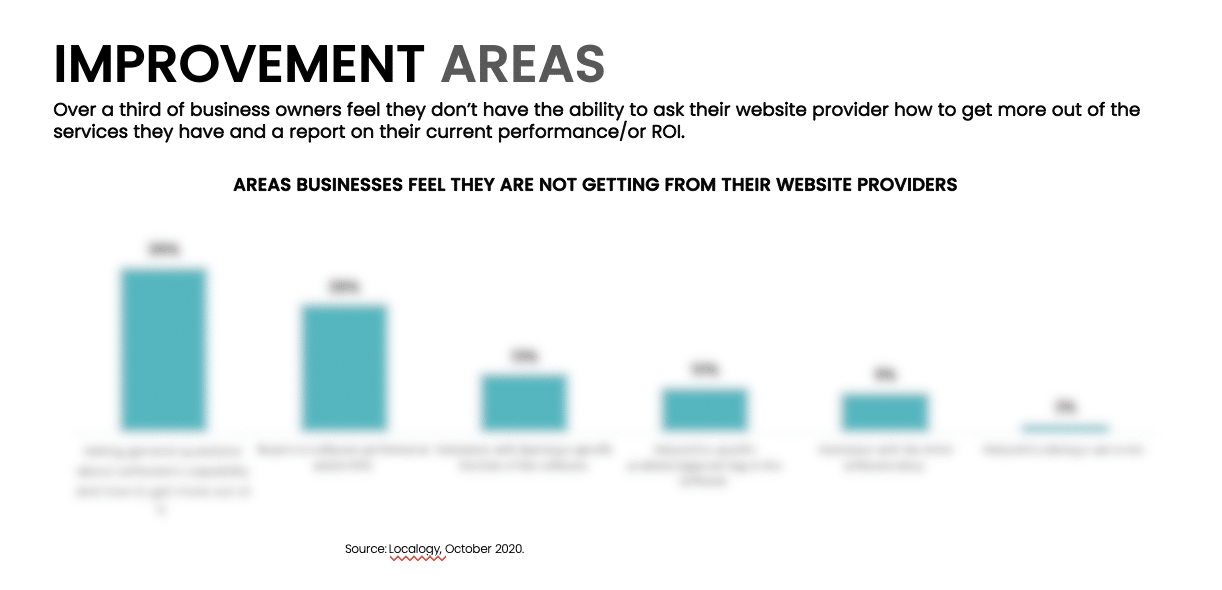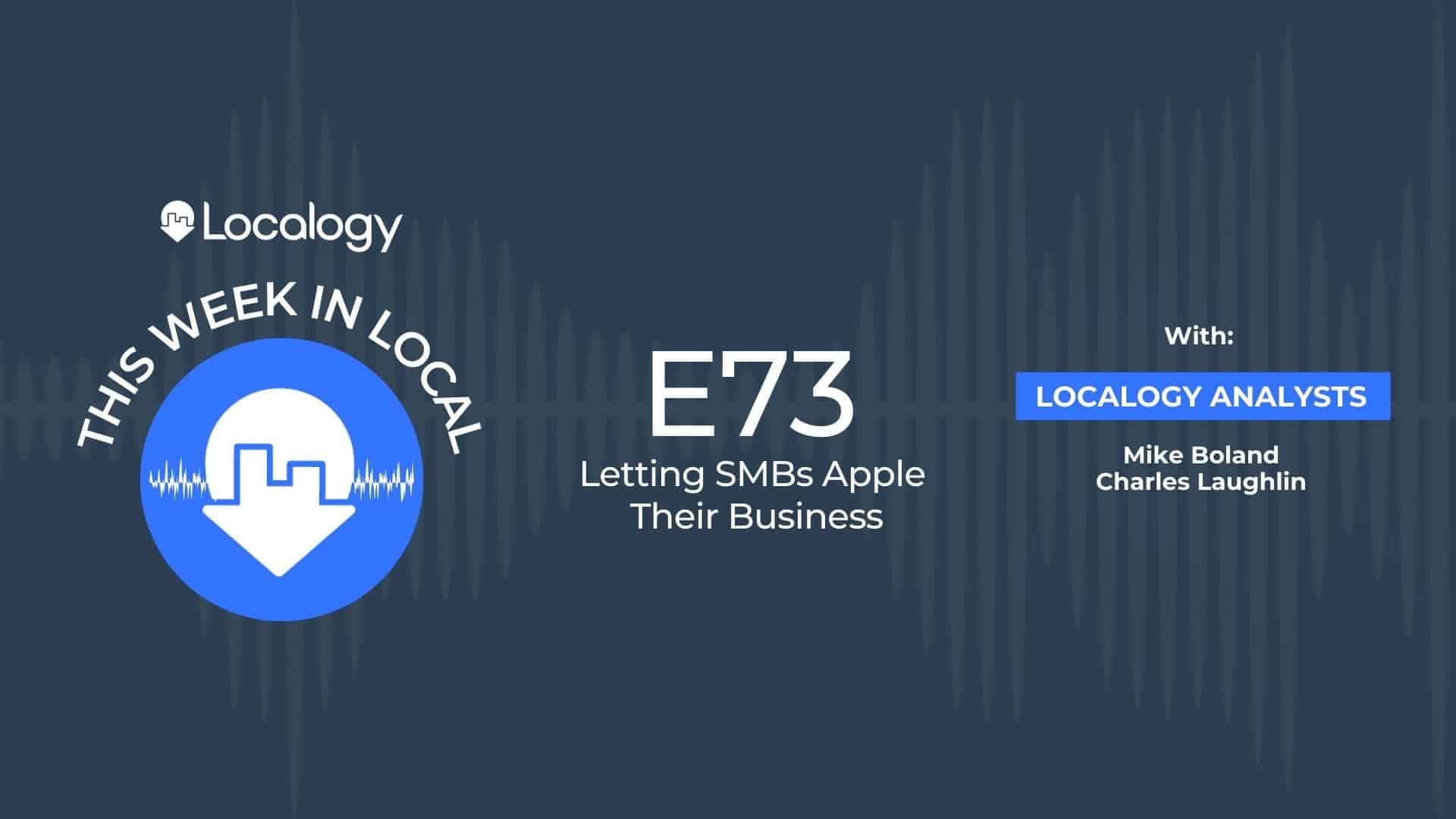After examining SMB website dynamics in our Website Windup series, and in roundtable discussions with thought-leading investors, we decided to go right to the source: SMBs themselves. How do they feel about websites? What features do they want? And do they upsell to adjacent services?
Localogy’s latest Small Business Trends report answers these and other questions across the SMB SaaS product set, which we examine one-by-one in this Benchmark Bytes series. After the last installment that examined SMB satisfaction with various website builders, we’ll now dive into where they believe improvement is needed.
First, for context, we’ll reiterate the last installment’s data. At a high level, 50 percent of SMBs are satisfied with their website provider. Drilling down into individual providers, top marks went to Network Solutions (83 percent), Site 123 (80 percent), Shopify (80 percent), Strikingly (75 percent) and Web.com (59 percent).
Now, on to the improvement areas, the biggest thing that SMBs feel is missing from their website provider is the ability to ask general questions (36 percent). That’s followed by performance and ROI reporting (28 percent), assistance with learning specific functions (13 percent) and on-demand troubleshooting (10 percent).

What Does it All Mean?
Going a bit deeper on the above data points, a few things jump out at us:
— The fact that “ability to ask general questions,” is the most desired/missing feature is telling. It suggests that SMBs don’t know exactly what kinds of questions they’ll need to ask… but they do want the “security blanket” of knowing that support is available when issues arise.
— The desire for ROI reporting is also telling. They want to make sure that their dollars are well spent and want ongoing validation that website features are producing business results.
— This same analytics component is prevalent in other marketing products such as search marketing. SMBs sentiments here signal an opportunity for website builders to bring that same level of dashboard analytics to SMB-facing website areas.
— This functionality is pretty standard at basic levels, such as website traffic, but it could arguably go deeper into things such as non-website leads (phone calls, eCommerce orders, etc.)
— The desire for on-demand support for learning website functions is a sort of admission from SMBs about their lack of tech-savvy.
— But it’s also importantly a signal that they want to learn. SMB website builders should consider more resources to do this, though many already have “knowledge centers” which consist of articles, tutorials and documented support threads.
–Having high-touch support is easier said than done in terms of cost and preserving margin at low SMB spend levels.
— The desire for on-demand troubleshooting is likewise telling. This sort of aligns with the first bullet above, except it signals a need for reactive attention to specific issues as they arise.
— It’s surprising that this was desired less than the “general questions” point above, given that troubleshooting issues presumably come with greater urgency (e.g.. something broke). Still, it’s a telling demand signal for website builders to make sure they’re providing more on-demand support for technical issues.
— In addition to the areas of improvement mentioned above, SMBs named “Help with initial software setup” (9 percent) and “help with undoing a user error” (2 percent). The latter is similar in principle to the previous bullet.
Tip of the Spear
For further context, websites continue to be the “tip of the spear,” for SMB marketing. They’re often the first foray into online presence as SMBs graduate to higher levels of marketing. This is generally due to the cost/benefit ratio, given the falling cost of web hosting and escalating standards of website builders.
Websites are also the base ingredient of online presence and “table stakes” to get in the game for SEO, social amplification, and other areas. This is the reason many website providers have begun to expand their bundles to expand SMB relationships into higher-margin products like CRM and eCommerce.
This of course has gone into hyperdrive in the Covid era as SMBs have been forced to accelerate their digital transformation as a survival imperative. This often sends them into the arms of website builders as an onramp to the many other things they need to accomplish… eCommerce being most prominent.
We’ll return in future installments to go deeper on this bundling opportunity, as well as other factors like SMB digital adoption in other areas. Let us know what additional insights jump out at you from the above data, and stay tuned for more data breakdowns in our Benchmark Bytes series.



